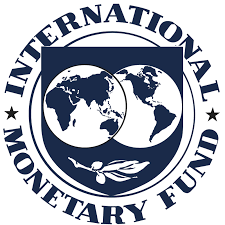IMF: ‘Growth has returned after years of stagnation’
NASSAU, BAHAMAS – The Bahamas continues to see international recognition of its structural reforms as well as economic turnaround from years of stagnation. The Government therefore welcomed the comprehensive assessment done by the International Monetary Fund (IMF) Article IV and FSAP teams and broadly concurred with many of the recommendations.
“Overall, the IMF Report reinforces the Government’s own assessment of the country’s economic outlook and financial system: Increased prosperity is on the horizon. We were pleased to see recognition that growth has returned after years of stagnation and that our reforms are bearing tangible fruit. Indeed the real economy grew by 1.6% in 2018 from a negative five year average of -0.2%. We continue to see a buoyant tourism industry with expanding construction activity underpinned by foreign investment projects and expanded domestic participation through the vacation home market. Our financial sector continues to prove that it is sound and resilient to current stability threats,” said K. Peter Turnquest, Deputy Prime Minister and Minister of Finance.
“The report identified known vulnerabilities and structural weaknesses, which means we are already actively engaged in addressing these needs. We feel confident that our ongoing structural and fiscal reforms and macroeconomic policies will continue to produce demonstrable achievements in this regard,” said Minister Turnquest.
“This administration is absolutely a ‘reform-oriented government’ and we embrace this characterization and recognition by the IMF in its most recent report. We are finally making tangible progress on longstanding issues that have held the country back. Because these issues were not glamorous or easy to solve, they were swept under rung by previous governments. We are getting the job done and making a difference one problem at a time: From fiscal responsibility to ease of doing business to improved tax administration to financial sector reform,” he said.
The Government strongly agrees with the need for raising human capital through educational and vocational reforms that will lower youth unemployment and address skill mismatches; hence, the Government’s comprehensive approach to education reform. “Our demonstrated commitment to universal tertiary and pre-school education in the 2019/2020 budget is evidence of this administration’s pledge to invest in the human capital of the country”, Turnquest added.
Efforts are ongoing to address long-standing structural issues, lower cost of doing business, and boost private sector investment. On enhancing the ease of doing business, the Government has reformed the Business License tax regime, with emphasis on elimination of licensing fees for micro-businesses, improving the license processing times, and modernizing the corporate structure.
The government is undertaking measures to lower costs of transacting with the government: the parliament approved a US$30 million loan from the IDB earlier this year, for the Government Digital Transformation to Strengthen Competitiveness Program (DTP). Public financial legislative initiatives are also underway to strengthen the fiscal landscape and secure alignment with international best practices, including the creation of a Public Debt Management Unit within the Ministry of Finance.
The unemployment rate remains high (10.7 percent in November 2018), especially among the youth, despite positive jobs growth. However, the Government’s initiatives to create jobs through support of small businesses and entrepreneurs showed early signs of having a positive impact as evidenced by the 11.9 percent growth in self-employed in most recent employment survey completed in November 2018.
“We acknowledge that efforts need to be enhanced to enable employment creation to keep pace with labor force growth. In this fiscal year we plan to expand our investments in small business and entrepreneurship, and we expect private sector investment initiatives and tourism sector growth to drive further improvements in employment conditions,” said Minister Turnquest.
Strengthening both tax administration and revenue avenues remain a priority for the Government. The recently established Revenue Enhancement Unit will identify and address deficiencies in revenue collection efforts. At the same time, the Government also recognizes the importance of expenditure reforms in fiscal consolidation. The various ongoing reviews, including those related to the suitability of current investment incentives, the governance and efficiency of State Owned Enterprises (SOEs) , and the adequacy of the public pension system, will help to enhance expenditure management over the medium term.


